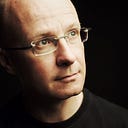I’m a postdisciplinary researcher
What does it mean? Why would I do so?
I find it increasingly relevant to position myself professionally as a ‘postdisciplinary researcher’. What does it mean? Why would I do so?
I’ve had the privilege to work sustainedly on projects that have a bearing on acute, complex societal challenges. Invariably our consultancy assignments include a research component. But the reality is also that the client-driven nature of our work provides precious little opportunity for long-term foundational inquiry. As a result much of my research has happened in the margin, in my own time, or folded into pro bono commitments. As I am deepening my craft I feel there is ever more, rather than less, to learn. So a need makes itself felt to spend more time on reflecting and exploring new ideas. It’s not only a matter of thinking, but also of doing. So I’m seeking out settings in which I can immerse myself in persistent, creative action research. Giving in to that impulse, I’ve launched myself on a self-financed PhD research hosted by the Newrope Chair of Architecture and Urban Transformation at the Swiss Federal Institute of Technology (ETH Zürich).
An academic setting is, however, no guarantee for a licence to do imaginative research. If it were, people wouldn’t have been talking for ages about inter- and multidisciplinarity. Lately the proponents of transdisciplinarity have been beating their drums. And justifiably so. It shows that something is wrong with the siloed logic of contemporary research and knowledge production. Post- looks like yet an other variation on the theme. But it really is another ball game. The stakes raised by the postdisciplinarians go beyond the ‘saving of the appearances’ of a disciplinary orthodoxy.
Tomas Pernecky put together a beautiful book on postdisciplinarity. It’s by no means easy to summarise what hides behind that equivocal label. But for the time being I would bring it back to these three key points:
- Postdisciplinary research is research that is becoming ‘search’ again. It is open-ended, not guided by pre-defined goals. The research follows an inner logic, moulded by the researchers personal intensions, evolving insights, confrontation with real-world frictions, access to progressively expanding resources, and all kinds of contingencies and surprises. This logic can manifest itself as circuitous, abductive and non-linear, in contrast to the incrementalism of rigidly disciplinary approaches.
- Postdisciplinary research is research that is becoming ‘me-search’ again. It seeks to invest the research process with existential density, in other words, the researcher is deeply invested at the personal level and seeks to encounter her/himself through research and as maker of knowledge. This deep personal commitment needs to be complemented and balanced by a serious effort to deepen reflexivity through first-person, second-person and third-person inquiry.
- Given the above, it is no surprise that a postdisciplinary approach is methodologically and epistemologically flexible. This is predicated on the recognition 1) that there are different ways in which we meaningfully make sense of our worlds, and 2) that it is problematic to reduce human experience to a set of generalisable facts. It moves away “from a notion of choosing a research method to engaging with and shaping a research process.” (Gail Simon).
One might say that postdisciplinarians turn knowledge production into an art, in the sense that their efforts are governed by an ethos of disobedience, beauty, and existential density. Indeed, artists have been the post-disciplinarians par excellence, long before the term was coined. It’s good to keep in mind also that the distinction between art practice and the sciences was non-existent until the nineteenth century.
We might also say that postdisciplinary research returns to the pre-scientific ethos of amateur scholarship. In the introductory chapter to his wonderful book Correspondences, Tim Ingold writes about how the amateur opposes her/himself to methodological and institutional rigidity: “For having chosen to align his or her entire life and being with the subject of study, the amateur seeks a softer and more sympathetic approach, one that both answers to the call of the subject and is in turn answerable to it. The response is tinged with responsibility, curiosity, with care.” Referring to the words of artist and visual anthropologist Amanda Ravetz, Ingold points to the ‘correspondence with felt vitality’ that postdisciplinary research seeks to reveal.
As a result, a postdisciplinary practice may have something to offer that mainstream reductionism does not: a powerful story. Which is the subtext of the collection of essays edited by Tomas Pernecky. Because all these reflections and testimonials are heartening, stirring to read. This is about being alive, about enlivening, while engaging with the perplexing richness of life on earth. This is, in Nietzschean terms, a ‘cheerful science’ that makes us stronger, more generous and more compassionate rather than more calculating, fearful, and tired.
Isn’t this what we need, now, in this most peculiar timeframe, in which humanity is struggling to find a way forward into a potentially very threatening Anthropocene? Mainstream academia will not spawn a new Renaissance. If at all, a transvaluation of all values will emerge out of the crevices of a wayward, disobedient postdisciplinary practice.
I’m betting my own personal and professional future on this. I’m resolved to relinquish the self-image of ‘knowledge worker (bee)’ and to become a ‘cheerful scientist’ with a self-granted mandate to create spaces where life is able to unfold as life wherever I can. I trust that this, in all kinds of fathomable and unfathomable ways, will constitute a tiny but meaningful contribution to better life on earth.
